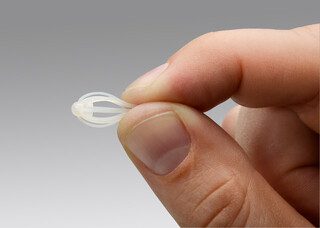CMS published an average selling price (ASP) for the Company’s SINUVA sinus implant, providing predictability, transparency, and confidence of reimbursement for providers and payers going forward.
In January 2021, CMS created separate and distinct codes for Intersect ENT’s two bioabsorbable implant product lines PROPEL (S1091) and SINUVA (J7402).
CMS has now attached an ASP to J7402, “mometasone furoate sinus implant, (sinuva), 10 micrograms.” Previously, a single code covered both products despite their substantial differences.
Additionally, CMS confirmed the consolidation of all coding for SINUVA into the newly created Code, J7402. In so doing, CMS’s action incorporates SINUVA “pass-through” status in ambulatory care settings with Medicare patients to the new J-Code, J7402, and eliminates the temporary sinus implant C-Code, C9122, issued in July 2020. These actions came as a result of the Company’s application to CMS for clarification and simplification in the coding of the products. The Company believes the separate and dedicated codes will have a positive impact on patient and physician access by improving accuracy in claims adjudication, supporting expanded use at multiple sites of service, and providing greater clarity of coverage for payers and providers.
“We are pleased that CMS consolidated SINUVA* coverage to a single code and published a SINUVA ASP. These actions will help better inform ENT surgeons of the amount of implant reimbursement they can expect regardless of the setting of care, thereby greatly reducing the uncertainty that can come with claims submissions,” stated Thomas A. West, President and Chief Executive Officer of Intersect ENT. “CMS’s recent decisions will also clearly differentiate coding for SINUVA and PROPEL two very different products. This will serve to simplify and streamline coding and reimbursement across our portfolio and will support evidence-based and cost-effective care across the continuum of need in chronic rhinosinusitis.”
*SINUVA is a non-surgical, corticosteroid-eluting implant for the treatment of nasal polyps in adult patients who have had ethmoid sinus surgery. Its innovative 2-in-1 design incorporates a self-expanding, bioabsorbable implant structure along with the targeted delivery of an anti-inflammatory corticosteroid, mometasone furoate. It provides localized drug delivery for up to 90 days directly to the site of disease.
By nature of its design as an office-administered implant with direct delivery of anti-inflammatory medication, SINUVA minimizes the reliance on patient compliance. SINUVA is clinically proven to reduce polyps and the need for revision nasal surgery, as well as improve the symptoms of nasal polyps, nasal obstruction, congestion and decreased sense of smell.



